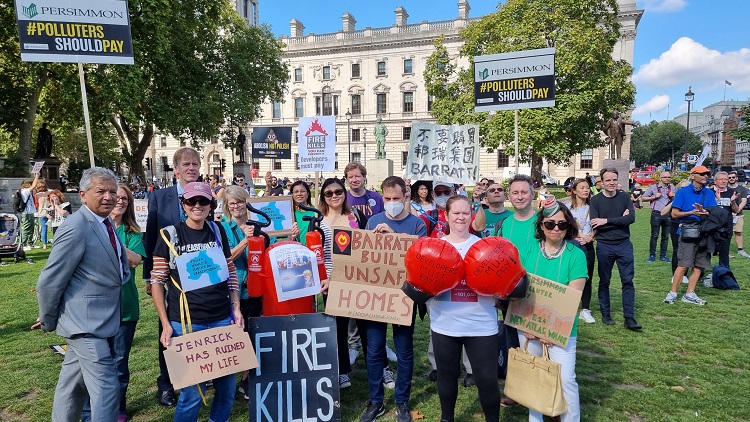There are around 5.3 million leasehold properties in the UK. Labour could lose these votes if it doesn’t act fast, Scoffin warned.
“If Labour doesn’t feature clear commitments to ending leasehold via a mass shift to commonhold in their manifesto, they should expect electoral consequences for it among leaseholders, many of whom are understandably single issue voters,” he said.
What is leasehold?
Leasehold is a type of property contract. A leaseholder owns the right to live in a property for a fixed term, but doesn’t own the land on which it stands. They must pay ground rent and service charges to the freeholder – costs which have soared in recent years.
After the Grenfell tragedy, defects in building safety came under greater scrutiny, and leaseholders were slated for costly safety fixes. But they are unable to sell their homes, as the value of the lease decreases over time – and they are subject to ground rents that can double every 10-15 years.
Both major parties have made promises to reform the system.
Earlier this year, housing secretary Michael Gove introduced a bill to extend the default length of a lease and to make it cheaper to convert a leasehold into a freehold. But plans to reduce ground rent to a ‘peppercorn’ rate have reportedly been dropped.
Advertising helps fund Big Issue’s mission to end poverty
Labour’s plans are more ambitious. Almost a year ago, then-shadow secretary of state for levelling up, housing and communities Lisa Nandy pledged to replace the existing leasehold structure with a “commonhold” regime, promising to introduce legislation within the first 100 days of a Labour administration. Commonhold is a form of freehold for flats and other properties with communal areas or services.
Labour plans to end the sale of new houses on a leasehold basis, ban new ground rents, and set a “simple formula” for leaseholders to buy out the freehold of their home (or commonhold in the case of a flat) capped at 1% of property value.
The timeline has changed, but a Labour spokesperson said that the party remains committed to the policy “at the earliest opportunity.”
“Labour’s commitment to comprehensive leasehold reform hasn’t changed,” they said.
Leasehold abolition was “always going to take more than 100 days,” said Linz Darlington, managing director of lease extension specialists Homehold.
“Labour still says they are committed to leasehold reform and so they should be. A new bill – properly considered and well drafted – needs to be introduced to first include a ban on all new leasehold properties,” he said.
Advertising helps fund Big Issue’s mission to end poverty
“The current Conservative government have left leasehold reform too late in the parliamentary process and are now limited on what they can do.The next government needs to make credible promises with realistic timelines – and then stick to them.”
But delays are agonising for leaseholders, said Scoffin.
“Far too many in Westminster and the media treat this as a dry, technocratic housing issue. They are wrong,” he added.
“Leasehold is a cost of living emergency, and a mental health one. Leaseholders’ dreams have turned into their nightmares.”









